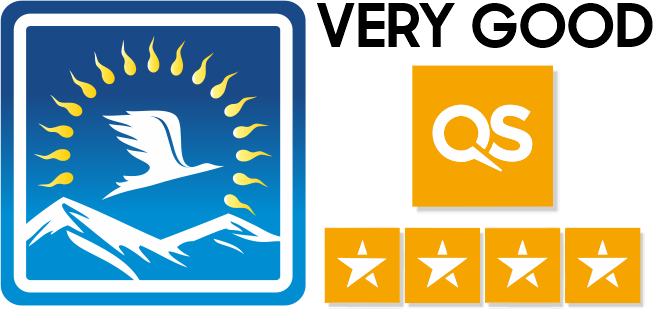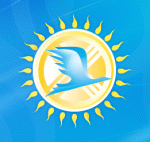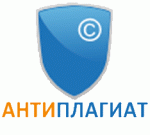The meeting of the Academic Council on the reform of education
 The meeting of the Academic Council was held in Karaganda Economic University on March 7, 2017, which addressed issues related to education reform, criticized in social networks.
The meeting of the Academic Council was held in Karaganda Economic University on March 7, 2017, which addressed issues related to education reform, criticized in social networks.
The actual reform that is being conducted in Kazakhstan today is the development of a multilingual education, the formation of a multilingual population in the modern conditions of a globalizing world.
The problem of position and the perspective of the language situation in modern Kazakhstan are reflected by the President of the country in the language strategy "Trinity of languages". According to the idea of the head of state, the positive development of trilingualism is possible only if there is a single political, ideological and cultural platform.
And today the teachers of universities have the most important task - to study modern methods of teaching of the discipline in English in leading universities of the world and to introduce them into the educational process with the goal of forming a professional poly-lingual personality.
Since November 2016, the Center for Multilingual Education has started functioning at the university; the process of implementation of multilingual education: the disciplines are developed in English, a contingent of trainees is identified, their knowledge is monitored, and qualified teachers are engaged.
About 30 disciplines in English are already introduced in the educational process. At the University, the Center trains 65 teachers and staff and 40 students in linguistic international standards (English).
In the nearest future the staff of the Center for multilingual education for multilingual teachers plans a seminar on contemporary methods of CLIL and improvement the multilingual teachers skills in the e-Learning system. Professor of the University Brunnelia A. Altonaian will read a course of lectures on the methodology of critical thinking in teaching special disciplines in English.
Multilingualism implies the mastering of two, three or more languages. The study of Kazakh language as the state language is constantly under close control. A country's competitiveness starts with each person and competitiveness of each person depends on himself. The assertion that knowledge of the Kazakh language is a measure of competitiveness, is stressed by the President Nazarbayev: "knowledge of the Kazakh language is becoming one of the most important conditions of personal competitiveness." By mastering the state language by applying it in practice, we enrich our experience and become more competitive.
The University monitors the level of mastering the state language by the teachers , implementing discipline in Kazakh language in groups with Russian language. The courses for learning the Kazakh language for the levels A1, A2, B1 are organized for faculty and students.
Within the academic mobility the students of the MARA Technological University from Malaysia were trained at the university. To develop and promote the state language and culture of Kazakhstan the students had short-term courses of "Kazakh Language and Culture of Kazakhstan" in Kazakh, and were certified.
One more timely reform is introduction of the modified form of conducting Uniform national testing which will allow to differentiate holding examination at the school and high school level. Division of UNT into a school final assessment and high school admission examinations will expand the academic freedom of universities, allowing them to define intellectual potential of future students, including their opportunity to master the high school program. Objectivity of expected entrance examinations will raise a duty to hand over all of them without exception of categories of students: both winners of the Olympic Games, and graduates of Nazarbayev Intellectual schools. The academic public and parents widely welcome the considered possibility of free passing such examination for the first time and a further possibility of its numerous repeating an examination on a paid basis.
Another important reform in education is the updating of the qualifier of specialties content. Integration in the international educational space requires simplification of the procedures for recognizing the national education in the transition to the European administration system. The proposed document will significantly expand the academic freedom of educational institutions, suggesting the simplification of the procedure for the opening of new specialties within the framework of the higher educational institutions, the consolidation of scientific fields of knowledge, within which universities have the right to independently determine the name of educational programs, not excluding any specialties that are being implemented to date.
A breakthrough moment in the education system can be considered the implementation of a unique project "Serpin-2050", which allows young people from densely populated southern regions of the country to get quality education in universities and colleges in the Western, Eastern, Central and Northern Kazakhstan. Thanks to this program, young people have the opportunity to get high-quality education, a demanded profession; The students of the program are paid a scholarship, places in dormitories are provided, and employment assistance will be provided.
At the extended meeting of the board of the Ministry of Education and Science of the Republic of Kazakhstan (February 24, 2017) with the participation of university rectors, heads of the regional education departments, school directors, preschool establishments, the work of the Ministry of Education and Science of the Republic of Kazakhstan on improving the education system received general approval and support.





